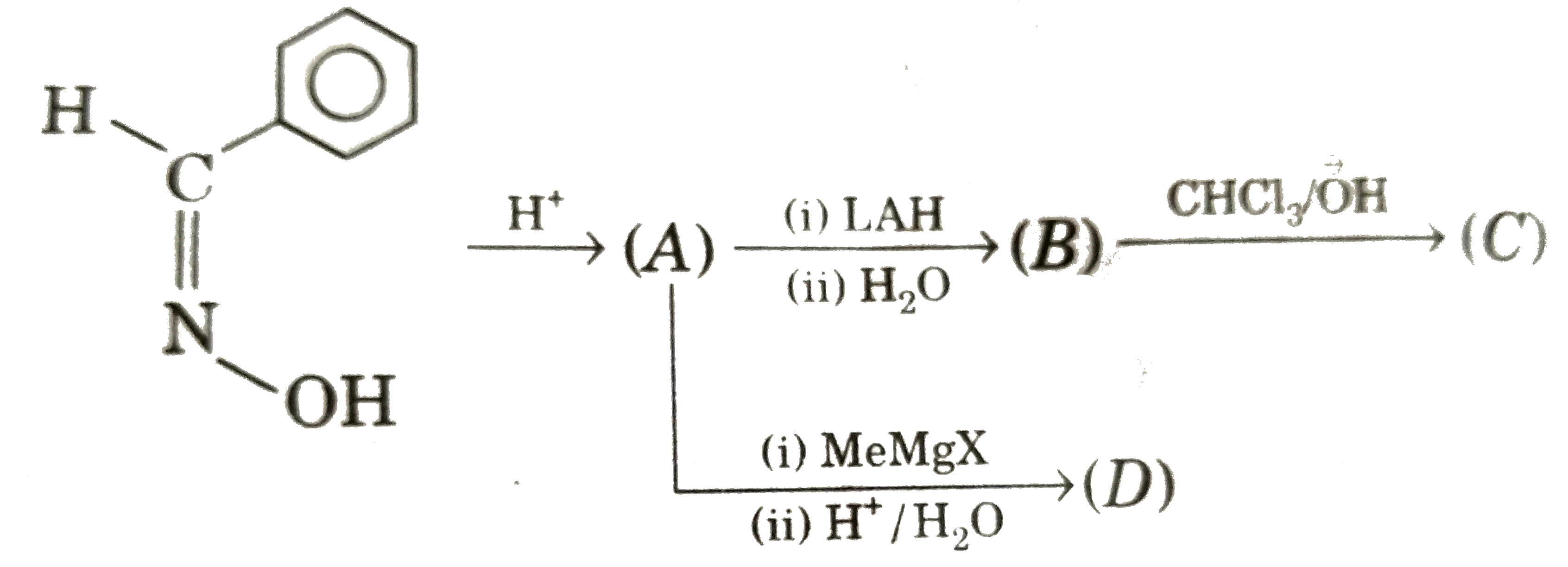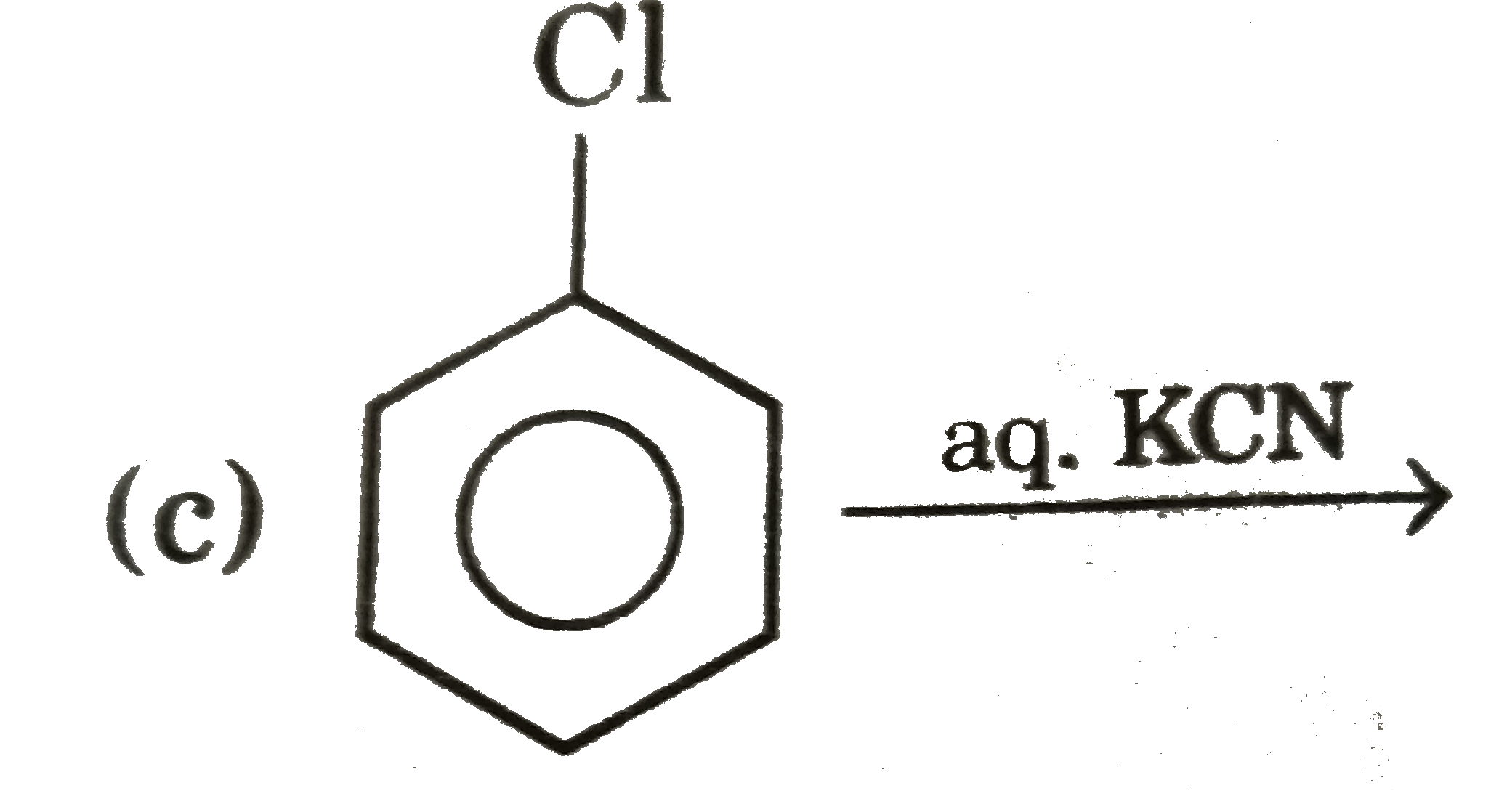Ketones can be prepared by :
Clemmesen's reducion
Rosenmund's reduction
Oppenauer's oxidation
Cannizzaro's reaction.
The correct Answer is:C
To determine how ketones can be prepared, let's analyze the options provided in the question step by step.
Step 1: Understanding Clementson Reduction
Clementson Reduction is a reaction that involves the conversion of aldehydes or ketones into hydrocarbons. This reaction uses zinc amalgam in the presence of hydrochloric acid (HCl).
- Reaction Overview:
- Aldehyde (RCHO) or ketone (RCOR') is treated with zinc amalgam and HCl.
- The carbonyl group (C=O) is reduced to a methylene group (–CH2–), resulting in the formation of hydrocarbons.
- Conclusion: Since this reaction produces hydrocarbons and not ketones, Clementson Reduction cannot be used to prepare ketones.
Step 2: Understanding Rosenmund Reduction
Rosenmund Reduction is a reaction that converts acyl chlorides (acid chlorides) into aldehydes. This reaction employs palladium as a catalyst in the presence of barium sulfate (BaSO4).
- Reaction Overview:
- Acyl chloride (RCOCl) is treated with palladium on BaSO4.
- The chlorine atom is replaced by a hydrogen atom, resulting in the formation of an aldehyde (RCHO).
- Conclusion: Since this reaction produces aldehydes and not ketones, Rosenmund Reduction cannot be used to prepare ketones.
Step 3: Understanding Oxidation of Secondary Alcohols
The oxidation of secondary alcohols is a well-known method to prepare ketones. When a secondary alcohol is oxidized, it loses hydrogen and forms a ketone.
- Reaction Overview:
- Secondary alcohol (R2CHOH) is treated with an oxidizing agent (like dichromate or KMnO4).
- The hydroxyl group (–OH) is converted to a carbonyl group (C=O), resulting in the formation of a ketone (R2C=O).
- Conclusion: Since this reaction directly leads to the formation of ketones, oxidation of secondary alcohols is a valid method to prepare ketones.
Final Answer
Based on the analysis above, the correct method to prepare ketones is through the oxidation of secondary alcohols.
---
Clementson Reduction is a reaction that involves the conversion of aldehydes or ketones into hydrocarbons. This reaction uses zinc amalgam in the presence of hydrochloric acid (HCl).
- Aldehyde (RCHO) or ketone (RCOR') is treated with zinc amalgam and HCl.
- The carbonyl group (C=O) is reduced to a methylene group (–CH2–), resulting in the formation of hydrocarbons.
Rosenmund Reduction is a reaction that converts acyl chlorides (acid chlorides) into aldehydes. This reaction employs palladium as a catalyst in the presence of barium sulfate (BaSO4).
- Acyl chloride (RCOCl) is treated with palladium on BaSO4.
- The chlorine atom is replaced by a hydrogen atom, resulting in the formation of an aldehyde (RCHO).
The oxidation of secondary alcohols is a well-known method to prepare ketones. When a secondary alcohol is oxidized, it loses hydrogen and forms a ketone.
- Secondary alcohol (R2CHOH) is treated with an oxidizing agent (like dichromate or KMnO4).
- The hydroxyl group (–OH) is converted to a carbonyl group (C=O), resulting in the formation of a ketone (R2C=O).
Based on the analysis above, the correct method to prepare ketones is through the oxidation of secondary alcohols.
Similar Questions
Knowledge Check
- Question 1 - Select One

A can be prepared byAPh−C∣∣O−Cl+NH3→BPh−C∣∣O−Cl+NH3POCl3−−−→ΔC D
D
- Question 2 - Select One
A ketone can be prepared by which of the following processess ?
AHydration of alkeneBOxidation of secondary alcohol.CReduction of acid.DHydrolysis of a cyanide. - Question 3 - Select One
Assertion : Ketones can't be prepared from RCOCl and a Grignard reagent R'MgCl
Reason : The Grignard reagent reacts faster with any ketone formed than it does with RCOClABoth A and R are true is the correct explanation of ABBoth A and R are true but R is not a correct explanation of ACA is true but R is falseDA is false but R is true
Read the passage given below and answer the following questions:
Aldehydes, ketones and carboxylic acids are few of the major classes of organic compounds containing carbonyl group. Aldehydes are prepared by dehydrogenation or controlled oxidation of primary alcohols and controlled or selective reduction of acyl halides. Ketones are prepared by oxidation of secondary alcohols and hydration of alkynes. Carboxylic acids are prepared by the oxidation of primary alcohols, aldehydes and alkenes by hydrolysis of nitriles and by treatment of Grignard reagents with carbon dioxide.
Name a method by which both aldehydes and ketones can be prepared.View SolutionBy which one of the following reactions ketones cannot be prepared ?
View SolutionBy which one of the following reactions ketones cannot be prepared ?
View Solution(A) Ketones can't prepared from RCOCl and a Grignard reagent R'MgCl.
(R) The Grignard reagent reacts faster with any ketone formed than it does with RCOCl.View SolutionWhich of the following alkane cannot be prepared by Clemmenson's reduction of ketones ?
View Solution

